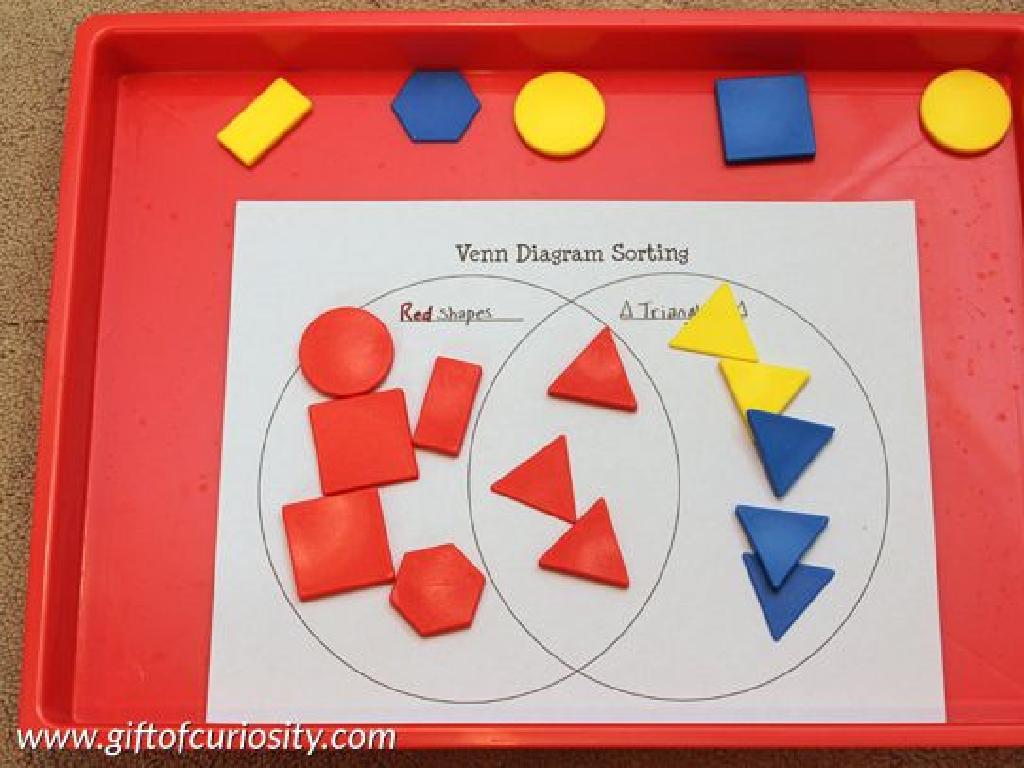Comparing Athens And Sparta: Part Ii
Subject: Social studies
Grade: Seventh grade
Topic: Greece
Please LOG IN to download the presentation. Access is available to registered users only.
View More Content
Comparing Athens and Sparta: Part II
– Recap: Athens vs. Sparta
– Reviewed government, culture, and military
– Why compare city-states?
– Comparisons highlight contrasts in values and lifestyles
– Athens: Birthplace of Democracy
– Known for its art, philosophy, and political system
– Sparta: A Warrior Society
– Renowned for military discipline and strength
|
Begin with a brief recap of the previous session, touching on the key aspects of Athenian and Spartan life, including their government structures, cultural norms, and military practices. Emphasize the importance of comparing Athens and Sparta to understand the diversity of ancient Greek civilization and how different city-states prioritized different paths to success. Discuss Athens as the cradle of democracy, highlighting its contributions to art, philosophy, and the development of a political system that still influences modern governance. Contrast this with Sparta’s focus on creating a strong military state, where citizens were trained to be warriors from a young age. This comparison will help students appreciate the complexity of ancient Greek society and the lasting impact of these city-states on Western culture.
Athens: The Cradle of Democracy
– Athenian government: Democracy
– Citizens had a direct say in state affairs, unlike modern representative democracies.
– Education’s role in Athens
– Education was highly valued, focusing on philosophy, ethics, and rhetoric.
– Arts and culture in Athenian life
– Art flourished, with an emphasis on drama, sculpture, and architecture.
– Status of women and slaves
– Women had limited rights; slaves were integral to the economy but had no political power.
|
This slide aims to compare the societal structures of Athens with those of Sparta. Highlight the unique aspects of Athenian democracy, where citizens participated directly in decision-making. Emphasize the importance of education in developing well-rounded citizens and the flourishing of the arts as a reflection of Athenian values. Discuss the limited role of women in public life and the reliance on slave labor for economic prosperity. Encourage students to reflect on the contrasts between Athenian democracy and modern democratic systems, and the implications of these differences on society.
Sparta: A Warrior Society
– Spartan Government: Oligarchy
– Ruled by a few powerful leaders focused on military strength
– Spartan Military Education
– Training began at age 7, focusing on discipline and combat skills
– Spartan Women’s Roles
– Women had more rights, trained in physical fitness to support strong warriors
– Helots in Spartan Society
– Helots were serfs tied to the land, outnumbered Spartans and could revolt
|
This slide delves into the militaristic nature of Spartan society, highlighting the oligarchic government that prioritized military prowess. Emphasize the rigorous education system that prepared boys from a young age for a life dedicated to warfare. Discuss the unusual role of Spartan women, who were given more freedoms and responsibilities to ensure they could raise strong warriors. Lastly, touch on the Helots, the state-owned serfs who were essential to Spartan economy but also posed a constant threat of rebellion due to their numbers. This comparison will help students understand the stark differences between Spartan society and other Greek city-states, such as Athens.
Daily Life: Athens vs. Sparta
– Athenian daily routines
– Athenians focused on education, arts, and public debate.
– Spartan daily routines
– Spartans dedicated their day to military training and discipline.
– Social structure comparison
– Athens had a democratic system, while Sparta had a military oligarchy.
– Daily responsibilities in Athens and Sparta
– Athenians engaged in trade, politics, and culture; Spartans in warfare and training.
|
This slide aims to give students a vivid comparison of daily life in Athens and Sparta. Highlight the contrast between Athenian emphasis on education, democracy, and the arts versus Spartan focus on military training and strict discipline. Discuss the social structures of both city-states, with Athens’ democratic approach and Sparta’s rigid oligarchy. Explain how these differences influenced the daily responsibilities of their citizens, with Athenians being more involved in trade and politics, and Spartans in maintaining a strong military presence. Encourage students to think about how the values and priorities of a society shape the lives of its people.
Economy and Trade in Athens and Sparta
– Athenian economy: trade-centric
– Relied on trade, used silver coins for transactions
– Spartan economy: land and iron
– Based on land ownership, used iron bars as currency
– Economic impact on society
– Athens’ wealth led to cultural development, Sparta’s economy supported military training
– Influence on military strength
– Athens had a powerful navy, Sparta’s economy ensured a strong army
|
This slide compares the economies of Athens and Sparta and their effects on each city-state’s society and military. Athens had a trade-based economy and used silver coins, which facilitated commerce and contributed to its cultural and artistic development. Sparta’s economy was based on land ownership and used iron bars as currency, reflecting its focus on agriculture and military prowess. The economic structures of both city-states were integral to their societal organization and military capabilities, with Athens boasting a formidable navy and Sparta renowned for its land-based army. Discuss how these economic differences shaped the social hierarchies and daily life in both Athens and Sparta.
Athens and Sparta: Military Prowess
– Athenian naval dominance
– Athens had a powerful navy, crucial for control over the Aegean Sea.
– Spartan elite hoplites
– Spartan society was centered on rigorous military training, producing formidable hoplite soldiers.
– Notable battles and tactics
– Key battles: Athens’ victory at Marathon and Sparta’s stand at Thermopylae.
– Comparing military strategies
– Contrast Athenian naval tactics with Spartan land-based warfare.
|
This slide highlights the military strengths of Athens and Sparta, emphasizing their different approaches to warfare. Athens invested heavily in its navy, becoming a dominant sea power, which was vital for trade and defense. Sparta, on the other hand, focused on creating an elite class of infantry known as hoplites, who were renowned for their discipline and strength. Discuss key battles such as the Battle of Marathon, where Athens showcased its military might, and the Battle of Thermopylae, which epitomized Spartan bravery and tactical skill. Encourage students to compare and contrast the military strategies of both city-states, understanding how geography and societal values shaped their approaches to war.
Cultural Achievements of Athens and Sparta
– Athens: Philosophy, Drama, Architecture
– Birthplace of Western philosophy, theatre, and monumental buildings like the Parthenon
– Spartan Discipline and State Dedication
– Spartan life focused on military training and loyalty to the city-state
– Lasting Legacies of Athens and Sparta
– Democracy from Athens, military organization from Sparta influence modern societies
|
This slide aims to compare the cultural achievements of Athens and Sparta, highlighting their unique contributions to civilization. Athens is renowned for its philosophers like Socrates, Plato, and Aristotle, its development of drama as an art form, and its architectural marvels such as the Parthenon. Sparta, on the other hand, is known for its rigorous military discipline and the prioritization of state service above all else. Both city-states have left enduring legacies: Athens for its early democratic principles and Sparta for its military discipline and organization. These legacies continue to influence modern societies in various aspects, including governance, military training, and cultural values. Encourage students to think about how these ancient cultures have shaped modern practices and institutions.
Role-Play Debate: Athens vs. Sparta
– Divide into Athenians and Spartans
– Debate city-state strengths
– Base arguments on today’s lesson
– Reflect on lessons for modern society
– Consider democracy, military strength, and cultural achievements
|
This class activity is designed to engage students in a role-play debate to deepen their understanding of the differences between Athens and Sparta. By dividing the class into two groups representing each city-state, students will actively participate in a debate highlighting the strengths of Athens and Sparta. Encourage them to use information from today’s lesson to form their arguments. This activity not only reinforces their knowledge but also enhances their public speaking and critical thinking skills. Conclude the activity with a reflection session on what modern society can learn from these ancient civilizations, such as the value of democracy, military preparedness, and cultural contributions. Provide guidance on debate etiquette and ensure that each student has the opportunity to contribute.






